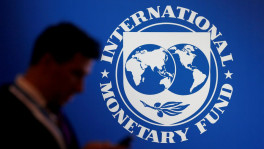Why does one of the fastest growing economies in the world have one of the weakest passports?
Irregular migration, anti-immigrant sentiment in the developed world, pre existing bias and inherent limits in research methodology all play a role in undermining Bangladesh passport’s standing in the Henley Passport Index

Recently, Bangladesh passport was ranked as the 9th weakest passport in the world in the Henley Index. It's not much of a surprise since we have consistently either moved up or down this index by only a few places over the last few years.
Henley Index's latest ranking placed the passport at 103rd position out of 116 positions. It is not quite easily understood what exactly the ranking means by itself for the passport holders. But one thing we know for certain is that Bangladesh passport has visa-free (or on-arrival visa) access to only 40 countries in the world, which is one of the primary parameters determining the ranking.
So why exactly is the Bangladesh passport so weak, what are the underlying factors that determine our visa-free access to countries around the world?
"If the ranking is based on the number of visa-free countries that a passport has access to, then our irregular migration is definitely related to it," said Former Ambassador Humayun Kabir, "We see it [Bangladeshis reaching destinations illegally] in the Mediterranean, in the Sahara, in Europe. These are the reasons or scope for the possibility for us to be portrayed negatively."
If we take a quick look at the short history of the Henley Passport Index, which was created only 16 years ago, we can see Bangladesh fared much better in 2006 (at 68th position) than it does now.
So how can we explain this trend? Increased movement of labour due to globalisation and the increase in anti-immigrant sentiment across the world, Kabir reckons, explains this trend.
"Technological innovation, financial innovation or you can say productivity innovation… this innovative process of globalisation made many old jobs redundant. And many people across the world were not able to adjust to the new economy from the old economy. For this, there has been a growing unemployment trend globally in the last 20 years," said Kabir.
Moreover, local politicians politicised this phenomenon for their interest and by doing so, "we have seen Brexit, Donald Trump, ultra-nationalists in Italy, AFD in Germany, etc," said Kabir.

A prevalence of anti-immigrant sentiment spread its tentacles across borders which, in effect, translated to more and more visa restrictions. Thus, with more and more Bangladeshis migrating overseas over the last two decades garnering more visibility in the diaspora and a growing anti-immigrant sentiment, it can be understood why Bangladesh's ranking fell in the Henley Passport Index.
But this is not all. There is a bigger picture at play here. First, the methodology matters a lot, according to Imtiaz Ahmed, Professor of International Relations at Dhaka University.
"When there is an index perception [or such ranking], it doesn't excite me as a social scientist [because of its flaws]," said Ahmed, adding, "I am sure there must be other criteria [beyond visa-free access to countries] and I assume it is very biassed toward developed countries where GDP and income per capita are taken into account."
Perhaps now that Bangladesh is a soon-to-be-a-graduate from the Least Developed Country (LDC) category and boasts a thriving economy with most, if not all, indicators pointing to luscious growth, it is time to look at why Bangladeshis take up illegal channels to migrate.
To this end, Kabir stressed on how we talk about development in the country consistently, "But we have to somehow relate this development to the lives of the common people, integrate the common into the development process and create opportunities for them."
"There are a few elements in this regard. For example, the young generation, the 2 million newcomers or the young population, who join the job market every year – for them, other than the development stories, can we present a tangible hope to them?
Do they feel hopeful about this country?" said Kabir.
To truly address the issue of irregular migration and ways to rectify it, one needs to look at the root causes behind this phenomenon, according to Kabir. He also added, "Is there any future prospect of employment or any other economic opportunity that we can guarantee? If not, then the question is, what will they do?
"They will look for ways to go abroad. And that they do, both legally and illegally."
Additionally, Bangladesh should take into account that improving employment opportunities in the domestic market is a tall order and attaining 100 percent employment in the foreseeable future is near impossible given the size of the population. By doing so, according to Kabir, those who are leaving for work opportunities anyway should be trained and equipped to perform better overseas.
"In effect, [Bangladeshi] workers would be welcomed in many countries. Visas would no longer be required, they would be welcomed without a visa or given a visa on arrival," he said.

A British firm named Henley and Partners is responsible for the Henley Passport Index, which takes data from the International Air Travel Association (IATA) and covers 199 passports and 227 travel destinations.
For a story on Bangladesh passports last year, the British firm was contacted and asked to explain the criteria they base their ranking on.
"We are investment migration advisory specialists rather than political commentators," said Sarah Nicklin, Group Head of Public Relations at Henley and Partners over an email. "However, what we have observed is that commonalities in history and economic status, shared foreign policy goals, and reciprocity come into play, as well as security, trade, and political alliances."
One can deduce that Bangladesh's passport ranking – which tied with war-torn Libya and ranks lower than Myanmar at 97th position which has been under military rule since February 2021 when its civilian government was ousted – is not quite black and white that can be explained by irregular migration. Because when compared with countries faring much worse than Bangladesh in many aspects, the ranking does not quite add up.
Henley Passport Index's Sarah Nicklin also said earlier, "There are many countries in the world that have wholesale bans on nationals of specific countries entering their borders or on their own nationals entering the borders of specific countries because of collapsed diplomatic relations."
Additionally, perhaps there is a pre-existing bias which perceives certain countries in a certain way. And continues to keep countries like Bangladesh at a disadvantage with a weak passport.
This is attested by the fact that even when Bangladeshis aren't the highest migrant population entering a certain country, they still have to go through checks (such as acquiring visas) to enter a country, whereas certain nationals do not.
"The highest number [of people] who migrate to Australia is still the British people," said Imtiaz Ahmed. The Australian Bureau of Statistics reconfirms this statement.
"And they are allowed in. Whereas if I want to enter [Australia], I have to be a doctor, or an engineer [or someone with credentials and background checks] or they won't allow me in," said Ahmed, "So that is the problem."
Germany tops the Henley Passport Index at 2nd position with 190 visa-free destinations. "They [the ones who create policies and rankings] know very well that a German will not go and stay in Bangladesh. But will come and do business in Bangladesh," said Ahmed, pointing to the fact that nationals from developed countries are at an advantage [no visa limitation] who continue to exploit the theory of comparative advantage to their benefit.
Ahmed said we could make a ranking based on who is travelling to countries to take benefits of cheap labour countries. Such a hypothetical ranking will likely not bode well for several developed countries that continue to reap the benefits of our labour.

If we reverse-engineer Kabir's explanation for Bangladesh passport's weakness stemming from irregular immigration, perhaps then what Ahmed said rings more true, "you see, the moment Bangladesh becomes Singapore, you know a developed country, things will change.
"I guess it [the ranking] has more to do with a country not having access to privileges that a developed country enjoys solely due to the global status quo."
Whatever the underlying reasons may be, there is no doubt that such restrictions on movement of Bangladeshi has far-reaching implications, including and probably most importantly, on our competitiveness in global trade.
"Of course, visa-free access will help. It's really very difficult now when global customers are calling for meetings and we are not getting a visa even within 60 days for some of the countries," said Abdullah Hil Rakib, Managing Director of Team Group and the Director of Bangladesh Garment Manufacturers and Exporters Association (BGMEA), over a text message.
Rakib, who was in Spain on a business trip during the drafting of this article, also mentioned that the situation (visa application processing time) is really bad now due to huge backlogs caused by Covid-19. "For Spain, our [BGMEA] president could get it [the visa] after three weeks," he added.
Faruque Hassan, president of BGMEA, echoed the same sentiment, recognising how many nations already have visa-free entry to many countries while Bangladesh remains at a disadvantage.
"This is, of course, a hindrance for our market expansion or when we have bilateral trade that we want to develop," Hassan told The Business Standard.



 Keep updated, follow The Business Standard's Google news channel
Keep updated, follow The Business Standard's Google news channel
















